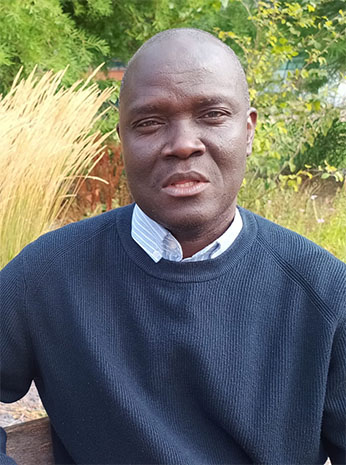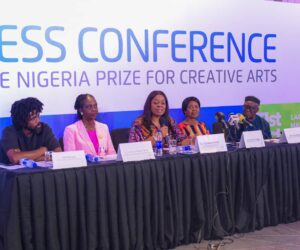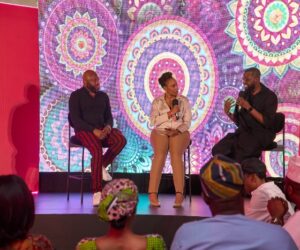1
In the dynamic world of film and television production, talented individuals with passion for storytelling and a knack for innovation are shaping the industry. Olumuyiwa Johnson Ojo, a seasoned professional with over 15 years of experience, is one such individual. With a background in producing, production/project management, script coordination, scheduling, and team leadership, Muyiwa has worked on numerous projects, including the award-winning television series Tinsel, Nigeria’s and Africa’s longest-running TV show. In this interview with YEMI ADEBISI, he also shared insights about the recent co-production between Nigeria and Brazil, his earlier trip to Brazil in 2015, and his role in facilitating cultural exchange and collaboration between the two countries.
Can you tell us about the trip you led to Brazil in 2016?
Yes, of course. The trip was to explore cultural exchange and co-production opportunities in the Brazilian entertainment industry, as proposed to His Excellency Ambassador Adamu Emzozo in 2015, which culminated in attending the 44th Festival de Gramado, one of Brazil’s biggest film festivals. Our team from Grand Synopsis Media met with various stakeholders, including government officials, film producers, and distributors, to discuss potential collaborations between Nigeria and Brazil.
That sounds fascinating. What were some of the key outcomes from the trip?
We secured a Memorandum of Understanding with TVE and FM Cultural, a television and radio station in Porto Alegre. We also met with the Mayors of Porto Alegre and Gramado, as well as their Secretaries of Tourism, who expressed interest in collaborating with Nigeria on cultural exchange and co-production projects. Nigeria and Brazil see vast opportunities for collaboration, leveraging Nigeria’s thriving Nollywood industry, which produces 80% of Africa’s movie content, and Brazil’s vibrant entertainment sector. With a combined population of over 1.1 billion people across South America and Africa, Nigeria serves as a gateway to the African market, offering potential for growth and cooperation in film and television.
That’simpressive. Whatroledidyouplayinfacilitating these meetings and outcomes?
I led the Nigerian delegation, started the conversations, and identified ways both sides could benefit. Think of me as the guy who introduces two people at a party, and suddenly they’re planning a wedding. I initiated and built relationships with our Brazilian counterparts, focusing on sustainable collaboration for the mutual benefit of the Nigerian creative industry.
Can you tell us more about the potential benefits of this cultural exchange and co-production treaty?
It’s a win-win! The treaty would open opportunities for Nigerian filmmakers and entertainers to access the Brazilian market, and vice versa. It would allow the exchange of ideas, skills, and expertise, enriching the entertainment industries in both countries.
What next steps are being taken to pursue this co-production relationship?
This is a government-to-government move; co-production is beyond what an individual can undertake, so it takes time to set up and activate. Beyond the agreement and the photo splash in the newspaper, major work will have to come into play. However, we’ve maintained sustainable relationships and consolidated what was possible from previous efforts. For example, in 2019, I, together with Partners, facilitated initiatives like the Nigeria @59 Independence Celebration and Tuface: 20 Years a King Brazil Musical Tour, aiming to create a competitive advantage for Nigerian entertainment by enabling collaboration with Brazilian practitioners.
Interestingly, on June 26th and 27th, 2025, Nigeria and Brazil signed a historic audiovisual co-production agreement, the first of its kind between the two nations. This deal allows filmmakers and production companies from both countries to co-develop and co-finance films, TV series, animation projects, and digital content. Joint projects will now have access to production grants, tax incentives, and distribution support in both Nigeria and Brazil, opening up broader markets and sharing technical expertise.
The next phase involves activating a bilateral working group to outline a detailed implementation plan, including funding calls, formalised incentives, and cultural and technical exchange programmes. This partnership strengthens both creative and cultural industries and ensures authentic storytelling reaches a global audience.
Let’sshiftgears. Canyoutellusaboutyourbackground in film and television production and what inspired you to pursue this career?
With over 15 years of experience across film, television, documentaries, commercials, and skits, my journey began with a passion for storytelling at Moshood Abiola Polytechnic, studying Mass Communication, and later at Unilag in History and Strategic Studies. I’ve honed my skills through formal education, workshops, hands-on experience, and continuous learning both locally and internationally.
You’ve worked on notable projects, including Tinsel and Battleground. Can you elaborate on your role?
I focus on research to ensure stories are well-grounded, providing the writing team with accurate and quality insights. As script coordinator, I ensure factual accuracy and narrative credibility, working closely with the writing and production teams to meet tight deadlines while maintaining quality.
Canyou give an example of how you’ve demonstrated your technical expertise and leadership skills?
Television and film production are all about teamwork. On Tinsel, I led scheduling and research, implemented industry-standard software, and mentored colleagues. I stay sharp on industry trends through discussions, workshops, seminars, and online forums locally and abroad.
We also heard about your involvement in the AI-powered storytelling platform, Plotweaver. Can you tell us more?
Plotweaver is an operating system that will revolutionise content creation from Pre-Production, Production and Post-production. Our AI-powered platform allows creators to write, script, refine, budget, schedule, localise, and export content globally. It features four core AI tools and is the world’s first comprehensive AI creative ecosystem, democratising professional storytelling while preserving authentic cultural voices.
Congratulations on the Lagos State Youth Storytelling Challenge 2025. What’s your role in this project?
I am a Co-founder at Plotweaver. Plotweaver is powering the Lagos Youth Storytelling Competition, Africa’s largest youth storytelling initiative. It engages over 200,000 students across 5,000 schools in Lagos State. Participants share original stories reflecting their lives, communities, and aspirations. Our platform provides real-time data analytics, archives, and international showcases.
How do you see this impacting the youth and creative education?
This project will transform creative education, showcase student talents, and promote Lagos State’s values and culture. Storytelling is a necessary skill for the future, and we aim to make it a sustainable part of education.
What message would you like to convey to students and stakeholders?
Nigerians are incredibly creative, and students should explore their talents through innovative and fearless storytelling. Dream big, tell your stories, and don’t wait for permission to create — Lagos is listening, make sure it hears you.







